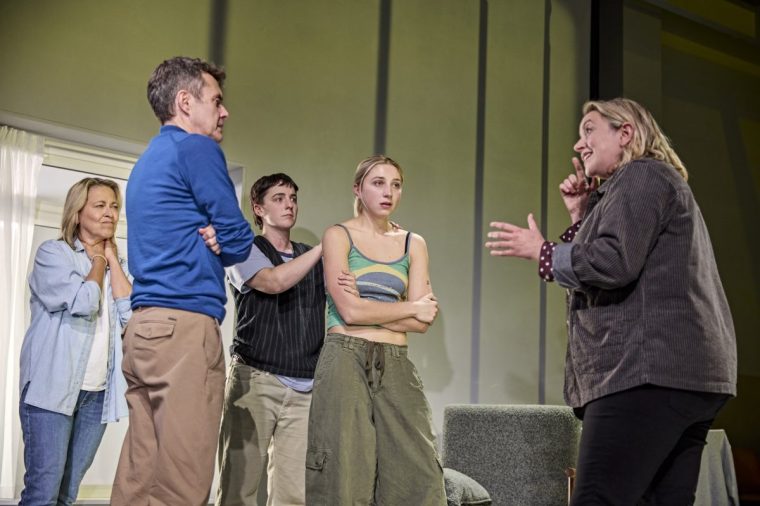The Split actor is terrific as a mother reeling in the wake of the disappearance of her teenage son
After a torrid few years, the Royal Court, the country’s premier new writing theatre, is finding its rhythm once again. Artistic Director David Byrne’s programme cannily interweaves more formally audacious work with guaranteed big hitters and this latest play from Nick Payne confidently straddles both categories, starring as it does Nicola Walker (The Split, Unforgiven) in a performance of blistering potency.
Payne made his name at the Court in 2012 with Constellations, a playfully time-shifting examination of love and chance, and time does not run in a straight line in The Unbelievers either.
The subject here is a missing teenager, Oliver, who has disappeared from his family home without trace and the 100 minutes of drama intercut scenes from immediately after Oliver goes missing, one year on and seven years later. To add to the sense of jumbled momentum, scenes run into each other without pause, as time passes and Oliver’s loved ones, headed by desperate mum Miriam (Walker) wait in vain, in pain, for answers.

If the process of grief itself isn’t linear, this family’s excruciating limbo-like state of non-grief is anything but a straight line; every social interaction down the years has an inescapably hollow sense of people small-talking over the immeasurable chasm of loss. Nonetheless, as time passes, Oliver’s older sisters Nancy (Alby Baldwin) and Margaret (Ella Lily Hyland), as well as father David (Paul Higgins), manage to some extent to “move on”, or at least to move sideways from his absence.
Yet Miriam remains stuck, a white-hot ball of sadness and fury, whose dangerously coiled geniality erupts at unexpected moments, especially when desperate straws are clutched at. When Walker gnaws a fingernail, it seems as though she might devour an entire finger without noticing.
Marianne Elliott’s clever production divides the stage into front and back sections, which designer Bunny Christie dresses with deliberate anonymity. One half is the family living room, bleached of all colour and individuality in this new landscape of loss, while the other is a waiting area in which the actors sit slumped, a tableau vivant of isolation and despair, when they do not feature in a scene.
Payne allows shards of dark humour to leaven the gloom, often from Walker’s incredulous Miriam and increasingly from Hyland’s straight-talking Margaret, who like her more contemplative sister fears that she is starting to lose a mother as well as brother.
As so often in life, there are no answers, yet time stubbornly, infuriatingly moves forward; for Miriam, however, it stands still and we are more than content to watch Walker in this state of stasis.
To 29 November (020 7565 5000, royalcourttheatre.com)
